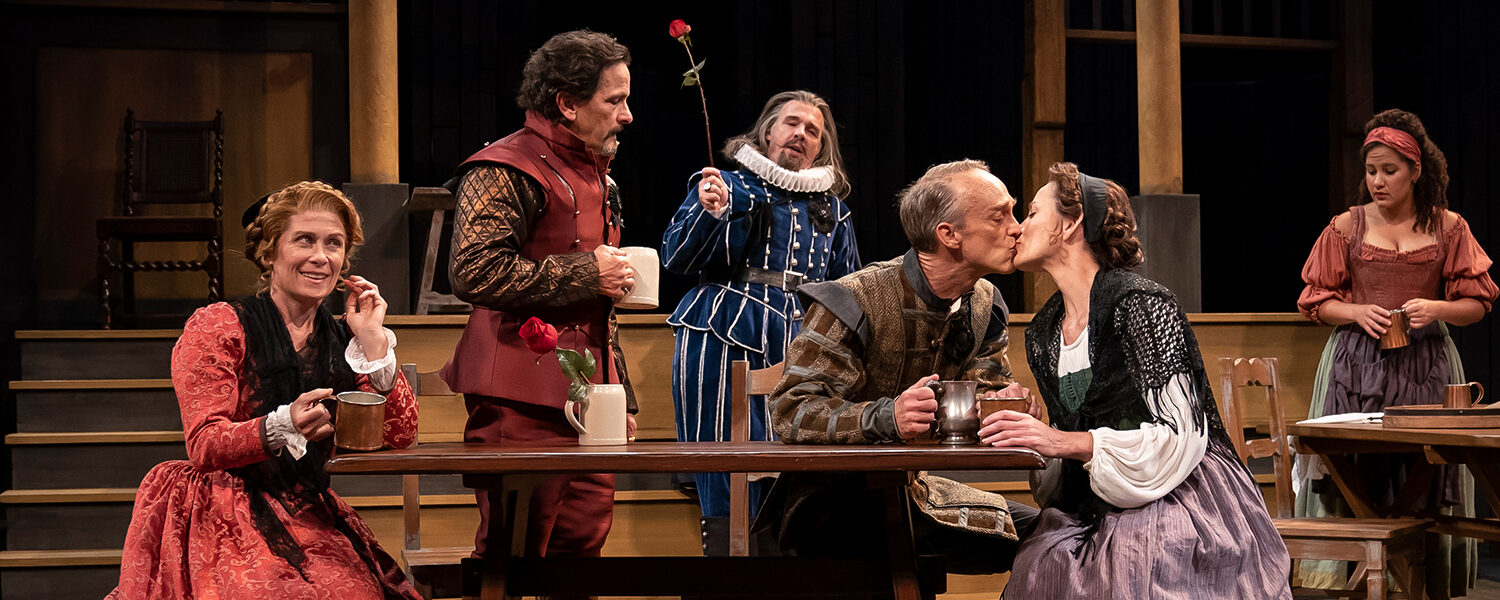Contact Us
American Players Theatre
5950 Golf Course Road
P.O. Box 819
Spring Green, WI 53588
(Map)
Box Office: 608-588-2361
Administration: 608-588-7401
Fax: 608-588-7085
American Players Theatre
5950 Golf Course Road
P.O. Box 819
Spring Green, WI 53588
(Map)
Box Office: 608-588-2361
Administration: 608-588-7401
Fax: 608-588-7085

By Jodie Jacobs, Chicago Theatre and Arts, August 20, 2019.
High school kids typically encounter Shakespeare in an English class. A Shakespearean comedy is often staged outdoors in the summer. And, insightful comments from Shakespeare’s plays are quoted so often that some of the folks saying the witty words don’t even know they originated more than 400 years ago from the pen of an English playwright/poet who died in 1616.
But what if the plays of this great dramatist called the “Bard of Avon” had been lost or remembered incorrectly by players and printers?
Why and how they have been saved as the 1623 First Folio is the subject of American playwright Lauren Gunderson’s “Book of Will.”
Gunderson goes back to when the King’s Men, the company that began as Lord Chamberlain’s Men (partly owned by Shakespeare) staged his plays.
When the King’s Men hear of other players attempting to put on some of Shakespeare’s plays after his death and an unscrupulous printer trying to collect the plays, they decide to gather those works into one published book.
The problem is that some of the plays can only be found as each actor’s script because Shakespeare preferred not to put it together until the actors were on stage, thus to prevent their theft. Also, some plays appeared to be lost, at least in the beginning.
Other problems range from finding a printer and paying for expensive paper to getting Ben Johnson, considered a long-winded, egotistical, rival writer, to do the preface because it would sell the book.
Tim Ocel’s direction pulls the different parts together so seamlessly that APT’s use of the aisles and Nathan Stuber’s double-stage design enhances the action.
Ocel paces the actors’ timing so well that the difficulties to overcome don’t feel repetitive and the play beautifully flows from the why to the how and concludes with a celebratory ending where all of the actors are reading the all-important what.
Read the full review here.